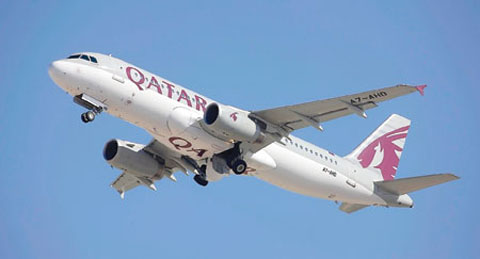
Eastern military forces have taken control of Gharyan, a town 100km south of the capital, Tripoli, signifying an escalation in the years-long power struggle in Libya.
The capture of the town on Thursday, after overnight skirmishes with forces allied to Libya’s internationally recognised government, followed a rapid westward advance by Khalifa Haftar‘s Libyan National Army (LNA) from its eastern base of Benghazi.
“We fully control Gharyan and right now as we speak I’m driving through the town,” Abdelsalam al-Hassi, commander of the operation to secure western Libya, told Reuters news agency.
The oil-rich country, which has been in turmoil since the NATO-backed removal of its long-time ruler Muammar Gaddafi in 2011, has at least two rival administrations: the internationally recognised government based in Tripoli, headed by Prime Minister Fayez al-Serraj; and another in the eastern city of Tobruk, which is allied with the renegade general Haftar.
Tensions rose on Wednesday after Haftar’s forces said they had moved towards the western part of the country, prompting the Tripoli-based government to declare a military alert.
On Wednesday, the LNA’s media centre said on Facebook that several units had headed “to the western region to cleanse it of the remaining terrorist groups”.
Its statement gave no details, but the area appears to be the coastal road linking the eastern city of Benghazi, the LNA’s main base, with Tripoli in western Libya. An accompanying video showed a column of dozens of armed vehicles moving along a road, but it was not immediately possible to identify their location or destination.
Serraj, who relies on patches of armed groups with flexible loyalties, called the eastern advance an “escalation” and urged Haftar’s forces to “stop using the language of threats”.
He said he had ordered pro-government forces to prepare to “face all threats … whether from terrorist groups, criminals, outlaws and all who threaten the security of every Libyan city”.
In response to the LNA’s advance, armed groups in Misrata city, which back the Tripoli-based government, said on Thursday they would block an advance on the capital.
The Misrata-based forces “stand ready…to stop the cursed advance” of the LNA, they said in a statement, as cited by AFP news agency.
‘Deep concern’
Earlier on Thursday, United Nations Secretary-General Antonio Guterres expressed alarm about a potential armed showdown in Libya.
“I am deeply concerned by the military movement taking place in Libya and the risk of confrontation,” Guterres said in a Twitter post on Thursday.
“There is no military solution. Only intra-Libyan dialogue can solve Libyan problems. I call for calm and restraint as I prepare to meet the Libyan leaders in the country.”
I am deeply concerned by the military movement taking place in Libya and the risk of confrontation. There is no military solution. Only intra-Libyan dialogue can solve Libyan problems. I call for calm and restraint as I prepare to meet the Libyan leaders in the country.
— António Guterres (@antonioguterres) April 4, 2019
Guterres’ remarks come a day after he arrived in the war-torn country, where he said he was “totally committed” to support a Libyan-led political process.
I have just arrived in Libya, totally committed to support a Libyan-led political process leading to peace, stability, democracy and prosperity for the Libyan people.
‘De facto commander’
In recent years, Haftar has expanded his foothold in large parts of Libya and has repeatedly expressed his intention to march on Tripoli.
Reporting from the capital, Al Jazeera’s Mahmoud Abdelwahed said on Thursday that “things are moving from bad to worse”.
“It seems that the rival factions on the ground are not listening to the UN chief’s warnings,” he added, calling the situation in Tripoli “tense”.
“People are afraid that if Haftar’s forces enter Tripoli, if they engage in military confrontations with local armed groups, there could be another war,” said Abdelwahed.
“We understand that local armed groups have vowed to face Haftar’s forces if they approach Tripoli.”
The rising tensions came as the UN is preparing to hold a conference later this month in the southwestern city of Ghadames to discuss a political solution to prepare the country for long-delayed elections and avoid a military showdown.
Abdelwahed said it was possible that Haftar wants to reach Tripoli before the conference “so he could impose himself as a de facto security commander in the western area”.
Analysts doubt the LNA is capable of launching a full-scale attack as it has stretched itself with the southern advance and is reliant on tribesmen and other auxiliary forces.












